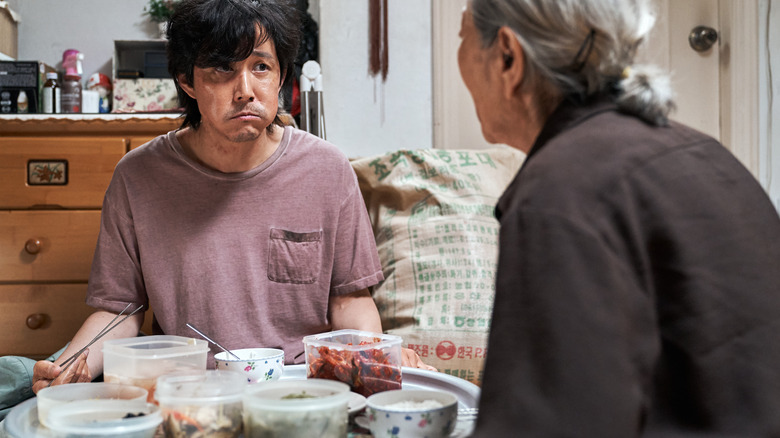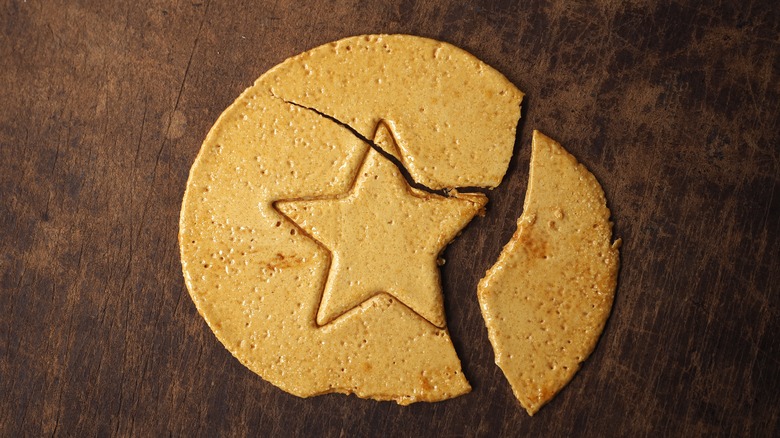Why The Food In Squid Game Is So Meaningful
When the man behind "Squid Game," Hwang Dong-hyuk, first started pitching his idea 10 years ago, he probably didn't anticipate that after years of being rejected by top studios, the show, now on Netflix, would be No. 1 in more than 90 countries, passing "Bridgerton" and "Lupin" as the most-watched Netflix show in the process (via Buzzfeed).
A huge part of the show's popularity is credited to the layering of social commentary through the episodes. In an interview with Bustle, psychiatrist Dr. Eric Bender explained that people from different backgrounds across the world could all relate to the way in which the series displayed economic inequality between the rich and the poor. One great way in which Hwang Dong-hyuk managed to portray this, which many viewers may have missed, is through food.
Food is a constant theme in the show. From the very first mention of food in the first episode, when Seong Gi-hun's creditor tastes the former's blood and suggests that it would make for a nice soup, to the famous honeycomb Dalgona challenge which is now making waves on the internet, food in "Squid Game" is constantly used to subtly represent the show's social themes.
There are two main instances in "Squid Game" where the show's creator uses food as a means of really nailing the social and economic inequality between the characters in a way that viewers sitting anywhere in the world can relate to.
Food is used to show social and economic inequality between the characters
According to Delish, the first instance takes place on the birthday of the daughter of protagonist Seong Gi-hun. All Seong Gi-hun can afford for his daughter's birthday meal is Tteokbokki — spicy rice cakes which are considered an affordable street food dish in Korea (via Serious Eats). Her stepfather, on the other hand, shown as far more economically secure and superior to Seong Gi-hun, took her to an expensive steakhouse for a birthday treat. Then, there's also the scene in which Cho Sang-woo indicates that Abdul Ali is too poor to even buy himself a pack of cheap ramyeon (instant noodles), let alone pay for his bus fare home.
The game makers also sought to hold power over all the contestants, and what better way to do so than limit how much food the contestants can eat? And so, in episode four, contestants are only given a hard-boiled egg and a bottle of soda for dinner, leaving contestants completely powerless to do anything about their hungry stomachs, which eventually causes fights to break out.
Lifestyle Asia also points out that the meal served to the last three contestants before the big finale — a T-bone steak that left red bloodstains on the plate, red wine that eerily looked like blood, and a steak knife — was a hint to viewers of all the blood and deceit that lay ahead.

